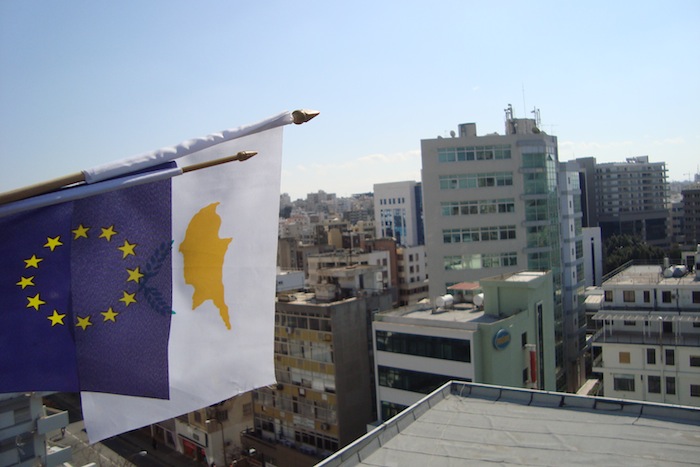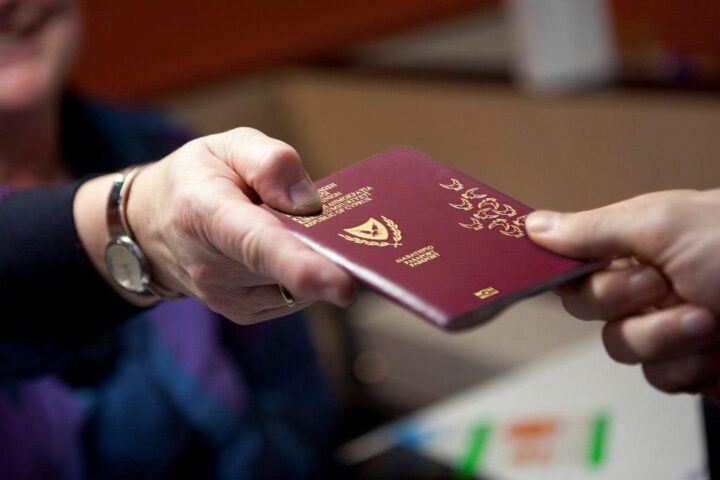Amid the turmoil over corrupt procedures for granting Cyprus passports to foreign investors, the European Commission is now accusing the Republic of not complying with anti-money laundering directives.
Cyprus has failed to comply with the latest anti-money laundering directive, which, according to the Commission, leaves a legal gap that could be exploited to the expense of the bloc.
An EC statement on 30 October said: “The Commission decided to send a reasoned opinion to Cyprus for failing to transpose the 5th Anti-Money Laundering Directive (AMLD5) into national law”.
Cyprus should have implemented the directive by 10 January.
“To date, the Cypriot authorities have not notified the Commission of any transposition measure. Legal gaps in one Member State have an impact on Europe as a whole”.
The European Commission in Cyprus declined to comment when asked by Financial Mirror.
The loophole is seen as another link in a chain of events and mishaps that have discredited Cyprus internationally.
The EU infringement procedure adds to Cyprus’ poor track record of undermining the union.
A recent Al-Jazeera ‘gotcha’ video depicting politicians aiding a criminal to obtain a Cyprus passport for money aired earlier in October, putting some leading politicians to shame.
The 50-minute expose showed then parliament speaker Demetris Syllouris, then AKEL MP Christakis Giovanis and a lawyer as the key figures in a passport scam.
Both Syllouris and Giovanis resigned soon after the video release.
Alexandra Attalides, former European Parliament Press Attaché in Cyprus, said it is now evident that corruption in Cyprus has infiltrated the highest levels of the political establishment, government, and society.
“It is no secret that a number of passports given to foreign investors are ‘dirty. And some offices involved in the “golden passport” investment scheme scandal carry the name of politically exposed persons,” Attalides told the Financial Mirror.
She argued that corruption has infiltrated the state to such an extent that Cypriots are losing their trust in the justice system to do its job.
“Even when state officials consent to have an independent committee look into any possible wrongdoing on their behalf, we see people with a questionable past involved.
“A great example would be that the latest committee set up to look into the wrongdoings related to the golden passport scheme, includes a person whose name is associated with conflicts of interest.”
Attalides said she is more upset at the fact that despite all the commotion surrounding the passport scheme, people trying to sell off Cyprus passports have not been discouraged.
When the government announced in October that the scheme would be coming to an end on 1 November, just some 176 foreign investors had submitted their application. Following the announcement, another 827 applications were submitted.
“Despite police warnings that using the Cypriot passport in any type of property sales advertisement is illegal, we still saw such adverts in Cyprus and abroad.
What has the police done on the matter? Has anyone been prosecuted?”
She called the situation a tragedy, as it is weakening Cyprus’ credibility internationally and in particular among its EU counterparts.
“People have to understand that they need to react, the political leaders need to react. We are turning into a pariah state.
“This is not the kind of country I want and have been fighting for my whole life. If we don’t react, what kind of future can we hope for?”
Attalides argued that people in power need to assume their responsibility and resign.
“We are talking about corruption which has inflicted damage to the country’s credibility, its environment, and its future generations.
“Anyone involved should have the decency to resign, and those involved in illegal actions brought to justice.”
Attalides has helped organise anti-corruption demonstrations outside the Presidential Palace.
“We want to show our discontent with the state and its decisions. We need to wake up and raise our voices before we wake up one day and find that we have no country left to fight for”.
Code of ethics
Also acknowledging that corruption in Cyprus has infiltrated the highest levels, a non-governmental watchdog says Cypriot society should be focusing on building a culture of ethics and morals.
“As a society and a state, we need to introduce a framework, a code of conduct that will cultivate a culture based on ethics,” said the head of the Cyprus Integrity Forum, Marios Skandalis.
“How can one take to the streets and demand any official to resign over an ethical issue, when there is no code of conduct or a culture that would force any official who has committed a moral and ethical offence to resign?”
He argued that as a society, Cyprus needs to go back to basics.
“Unfortunately, the older generations will leave this world with a bitter taste in their mouth from the corruption they have witnessed taking place in their country.
“However, it’s not too late to educate the younger generations which will be the driving force of this country in the future,” argued Skandalis.
The Cyprus Integrity Forum has issued a list of proposals to advance the creation of an Independent Authority Against Corruption.
Skandalis said that this is has been passed by the House but has yet to be implemented.
“The introduction of this institution has been held up by a discussion over who should lead it. We believe that judges should not be involved, rather the country should employ its numerous talented criminologists.”
He said Cyprus needs to speed up procedures of incorporating in its national law, directives, and recommendations by bodies such as the Group of States against Corruption (GRECO), the Council of Europe’s anti-corruption monitoring body.
“We have received some 18 recommendations from GRECO since 2016, and we have only incorporated just two, and eight were partially incorporated.”
Skandalis believes an official code of conduct must be introduced for all officials and institutions, whether government, state, or semi-state organisations.
He said a code of conduct needs drafting for the General Health Scheme, where there is a lot of scope for people to exploit the system from within.
The Cyprus Integrity Forum is also calling on MPs to approve, without further delay, laws on the financing of political parties by lobby groups and safeguarding whistle-blowers who sometimes report corruption under difficult and dangerous circumstances.










